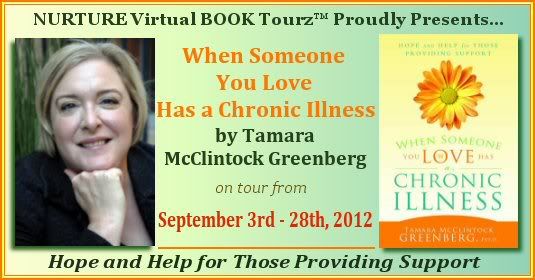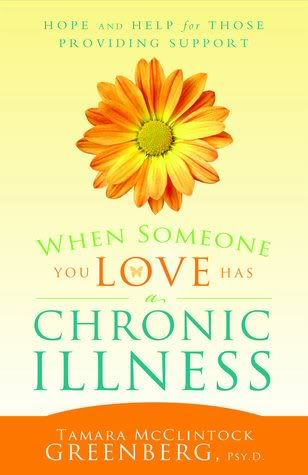
Synopsis of the book:
Thanks to advances in science and medicine the lifespan of the average American is now longer than ever and many illnesses that once would have proven fatal have become manageable, chronic conditions. Great news, right? Sure, but there is another side to the 21st Century health picture—and it is increasingly becoming part of the lives of Americans. Many more people are living with chronic illness and that means that more than ever family members, friends, and partners are needed to provide formal or informal support.
The average life expectancy in 1920 was around 54 years of age. Today it is between 76-80, though many of us can expect to live much longer—and to be the official caregiver or part of the care giving team for a loved one. For those of us not involved in formal caregiving roles, it is increasingly vital to know what to do and what to say when someone we know is ill. Knowing how to help is crucial to being able to sustain meaningful relationships in this unchartered time of uncertain longevity.
That’s why Tamara McClintock Greenberg, Psy.D., a clinical psychologist who specializes in treating individuals with chronic illness and their families, wrote WHEN SOMEONE YOU LOVE HAS A CHRONIC ILLNESS: HOPE AND HELP FOR THOSE PROVIDING SUPPORT (Cedar Fort Books, February 2012, ISBN: 978-1-59955-939-1, Trade Paper). In this groundbreaking book McClintock Greenberg shows readers how to provide the best care for their loved ones, without losing themselves.
When family, spouses, and friends are thrust into formal or informal caregiving roles they face a variety of psychological and physical challenges, and they often find themselves with little support and few resources. They also must address difficult issues such as non-compliance, denial, chronic pain and frustration on the part of their struggling loved one. No wonder, then, family members in a caregiver role have higher rates of depression and anxiety than those who aren’t involved in providing care. Vicarious trauma and “compassion fatigue” are common, as are feelings of guilt about having needs of their own and attempts to carve out time for themselves. Self-care can start to seem like a luxury that is out of reach. It’s easy to see how this exacts a steep toll on the caregiver, but new research also tells us that it impacts those being cared for. Studies now show that those who devote sufficient time and energy to their own needs provide better quality care than those who don’t. In other words, we provide better support when we pay attention to our own needs.
So, how can caregivers meet the demands of care giving without sacrificing self-care? Throughout WHEN SOMEONE YOU LOVE HAS A CHRONIC ILLNESS: HOPE AND HELP FOR THOSE PROVIDING SUPPORT McClintock Greenberg offers compassionate, authoritative, and step-by-step help for striking this critical balance. At the end of each chapter readers find a “coping checklist” that provides helpful, no-nonsense guidance on how to best address their loved ones’ needs and their own.

More about the book:
Genre: Non-Fiction: Relationships, Self-Help, Coping with Illness
Published by: Cedar Fort Publishing
Publication
Date: February 2012
Recommended Age: Any
Format(s): eBook, Trade Paperback
ISBN 13: 9781599559391
Number of pages: 176
My thoughts about the book:
Personally, I watch my family members and friends suffer from various diseases. I have friends and family with Multiple Sclerosis. I watch my almost 93-year-old grandmother cope with her multiple issues that are the result of her extreme age. My own husband struggles every single day with an undiagnosed issue as a result of doctors failing to figure out the problem. It is heartbreaking and I don't always know what to say or do. I think "When Someone You Love Has A Chronic Illness" is a wonderful resource for caregivers as well as loved ones of the ill. It is easy to read and Dr. Greenberg provides wonderful advice. I particularly like the Coping Checklists at the end of each chapter. Each checklist relates directly to that chapter. Dr. Greenberg provides so much information to readers. It's impressive! I strongly recommend this book to those with ill loved ones.
About the Author:

Tamara McClintock Greenberg, Psy.D., M.S., a licensed clinical psychologist, works with patients and family members affected by acute or chronic illness. She is an associate clinical professor and clinical supervisor at the University of California, San Francisco Langley Porter Psychiatric Institute. Dr. Greenberg has written three books and numerous chapters and articles on aging, illness, as well as issues pertaining to women. She writes for Psychology Today online and The Huffington Post. She also speaks to medical, psychological, and public audiences on the impact of illness, caregiving issues, and dealing with the modern medical system as a patient or loved one. She is in private practice in San Francisco.
Greenberg earned a bachelor’s degree in psychology at Hamline University in Minnesota and was awarded the prestigious Jacob Markovitz Memorial Scholarship to continue in the doctoral program at the Minnesota School of Professional Psychology. She graduated in 1997 with a doctorate in clinical psychology with a specialty in clinical health psychology.
Follow Dr. Greenberg on:
Website
Psychology Today
The Huffington Post
PsychCentral
Facebook
Twitter
*Disclaimer: I did not receive monetary compensation for this post. I received a free copy of the book for the purpose of this review. The opinions expressed here are my own.

































